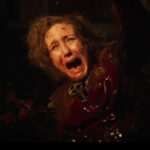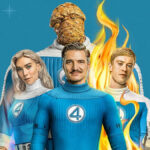The gripping Netflix limited series Baby Reindeer has captivated audiences with its raw, unflinching portrayal of the real-life stalking experience of comedian Richard Gadd. Based on Gadd’s autobiographical one-man show, the series delves into the messy, painful realities of trauma, obsession, and the complexities of human connection.
While Baby Reindeer is a riveting watch from start to finish, it’s the ambiguous, thought-provoking ending that has sparked the most discussion and analysis from viewers. In the final moments, several key revelations recontextualize the entire story and its characters in a new light. The cyclical imagery and open-ended final scene leave much open to interpretation.
In this deep dive, we’ll break down the crucial final scenes of Baby Reindeer in detail to unpack the layered symbolism, character arcs, and overarching themes. We’ll examine how the ending ties together the story’s exploration of trauma, identity, the gray areas of human behavior, and the elusive path to healing and redemption.
Plot Summary
Baby Reindeer follows Donny Dunn (played by Richard Gadd), a struggling comedian in London. One day at his bartending job, Donny offers a free cup of tea to a distraught customer named Martha (Jessica Gunning) in an attempt to cheer her up. This small act of kindness has devastating unintended consequences, as Martha quickly becomes obsessed with Donny and begins stalking him relentlessly.
As Donny tries to escape Martha’s increasingly disturbing fixation, he’s also grappling with the lingering trauma of being sexually assaulted by Darrien (Tom Goodman-Hill), an older comedian who had been mentoring him. Darrien had supplied Donny with drugs and repeatedly raped him during drug-induced blackouts, until Donny cut off contact.
Martha’s stalking escalates to terrifying levels, as she harasses not only Donny but his friends and family as well. Donny reports her to the police, leading to her arrest and nine-month prison sentence. However, Martha’s impact on Donny’s psyche is profound and long-lasting.
Later, Donny has a public breakdown on stage at a comedy competition, confessing his trauma, shame and self-loathing to the audience in vivid detail before abruptly leaving. A video of the moment goes viral, significantly boosting Donny’s career but also catching the attention of both Martha and Darrien.
As Donny navigates his newfound success and the resurgence of figures from his past, he reaches a breaking point. The series builds to a devastating yet ambiguous climax that sees Donny facing his deepest fears and regrets, culminating in a poetic final scene rife with haunting symbolism.
The Ending Explained
The ending of Baby Reindeer is a masterclass in subtext, symbolism and open-ended storytelling that invites deep analysis and interpretation. Let’s break down the key final scenes:
Donny’s Confession to His Parents
In a pivotal moment, Donny visits his parents in Scotland to preemptively tell them about his sexuality and trauma before Martha has a chance to. In a heartbreaking conversation, Donny admits his fear that being raped makes him “less of a man” in his parents’ eyes.
Donny’s father Gerry (Mark Lewis Jones) responds with a revelation of his own, heavily implying that he too was sexually abused in the Catholic Church as a child. This shared trauma between father and son is a gutting yet profound moment of connection and empathy.
This scene is crucial for showcasing the generational cycles of abuse, shame and silence around male sexual assault. It’s a rare, nuanced portrayal of how toxic masculinity compounds the stigma victims face. By opening up to each other, Donny and his father take a meaningful step in breaking that cycle.
Martha’s Chilling Voicemails
Throughout the final episodes, Martha leaves Donny hundreds of unhinged voicemails. In a disturbing development, Donny admits that listening to them became almost a compulsive habit, like an unsettling “podcast” he couldn’t stop consuming.
On one level, this is a raw depiction of the long-term mental toll of stalking and how victims can develop a perverse attachment to their tormentors. But it also speaks to the poisonous allure of attention and validation, even from the darkest of sources. As an aspiring comedian desperate for an audience, Donny can’t quite quit the “podcast” of Martha’s obsession with him.
The voicemails culminate in a chilling message where Martha threatens to stab Donny’s parents. This pushes Donny to finally report her again, leading to her re-arrest and a sentence of nine months plus five years probation.
While the literal threat is addressed, Martha’s psychological hold on Donny is more ambiguous. The ending examines whether Donny can ever truly break free from what Martha represents.
Donny Confronts Darrien
In the penultimate episode, Donny finds an old screenplay he had been writing for Darrien, prompting him to visit his former mentor unannounced. Donny seems to intend to finally confront Darrien about his abuse. However, when face to face, he loses his nerve.
Darrien, having seen Donny’s viral video, vaguely acknowledges Donny’s pain but doesn’t directly admit to being his rapist. Instead, Darrien offers Donny a writing job, ominously saying things will be different this time. Shell-shocked, Donny accepts.
This scene is a gut-punch depiction of how abusers maintain power over their victims and the complicated dynamics of exploitation. Darrien’s half-acknowledgment of Donny’s video confession is a master class in gaslighting, as he simultaneously dismisses Donny’s trauma while dangling a career opportunity to reel him back in.
Donny accepting the job offer speaks to how abuse victims often blame themselves, minimize their trauma, and feel a misplaced sense of loyalty to their abusers. It’s a heartbreaking illustration of the long road to healing.
The Meaning of “Baby Reindeer”
In the final moments of the series, Donny listens to a voicemail that provides a devastating recontextualization of the whole story. Martha reveals the childhood origins of her “baby reindeer” nickname for Donny.
Growing up in an abusive household, young Martha clung to a stuffed reindeer toy for comfort. She says the toy was her only happy memory from that dark time. In a gut-wrenching twist, Martha says Donny is the spitting image of that stuffed reindeer, from his nose to his “cute bum.”
On one level, this revelation is a tragic glimpse into Martha’s damaged psyche and how her obsession with Donny is a warped attempt to recreate the safety of her lost childhood. It’s a disturbing yet humanizing detail that makes Martha a more complex figure than a one-dimensional monster.
However, the symbolism goes even deeper when juxtaposed with Donny’s own trauma. The comparison to a child’s stuffed toy is a striking metaphor for Donny’s lost innocence and how abuse has left him feeling objectified, infantilized and frozen in time.
Martha’s fixation on surface details like Donny’s appearance eerily echoes how Darrien sexualized and exploited Donny’s body while disregarding his humanity. The fact that Donny and Martha’s relationship began with him in a service role, being ordered to smile and cheer her up, further underscores the dehumanizing nature of this dynamic.
In the devastating final shot, Donny cries alone as he listens to the voicemail comparing him to a helpless baby reindeer. This visceral ending captures how the effects of abuse and objectification can shatter a victim’s sense of self. Donny is left grasping for the stolen pieces of his identity and agency.
The Cyclical Final Scene
The series’ final scene is a haunting, ambiguous moment rich with cyclical symbolism and unanswered questions. Sitting in a bar, a distraught Donny orders a drink, only to realize he forgot his wallet. In a poetic echo of the inciting incident with Martha, the sympathetic bartender offers him the drink for free.
On a plot level, this interaction is a dark illustration of how easily Donny’s small act of kindness to Martha in the first episode snowballed into a nightmare. It asks whether Donny, in light of his experiences, would still make the same choice today. More disturbingly, it questions if Donny has now unwittingly set another cycle of obsession in motion with the bartender.
Symbolically, the scene also serves as a metaphor for Donny’s internal struggle between his compassionate instincts and his self-preservation. Accepting the free drink is framed as a moment of vulnerability and human connection, but the context of the series casts an ominous pall. It captures the paranoia that trauma can instill, where any interaction feels laden with potential danger.
Most profoundly, the cyclical nature of the final scene questions whether Donny can ever truly move forward from what he’s endured. In the literal sense, he’s still being stalked and abused, even if the players have changed. Psychologically, he’s still stuck in the same patterns of seeking validation, making self-destructive choices, and being drawn to those who may exploit him.
The ambiguous ending can be read as a pessimistic statement about the inescapable cycles of trauma, or an empathetic acknowledgment of how messy and nonlinear healing can be. It refuses to provide pat answers or tidy resolutions.
Ultimately, Baby Reindeer ends on a haunting note that will sit with viewers long after the credits roll. It’s a poignant, thought-provoking conclusion to a raw, unflinching story that sheds light on important issues rarely explored with such nuance and depth on screen.
Themes and Takeaways
Through its powerful ending, Baby Reindeer drives home its complex themes and leaves viewers with much to contemplate:
The Ripple Effects of Trauma: The series is a gut-wrenching portrait of how trauma can have far-reaching, devastating consequences that impact every facet of a survivor’s life. Donny’s mental health, relationships, and career are all consumed by the fallout of his abuse. The ending suggests that escaping those ripples is a lifelong battle.
The Cycle of Abuse: Baby Reindeer showcases how abuse is often a cycle perpetuated through generations and systems. Donny’s father’s implied childhood abuse in the church contextualizes how silence and shame get passed down. Darrien’s grooming of Donny into a potential future abuser himself further illustrates how exploitation repeats. The ending questions if Donny can break these cycles.
The Complexity of Victimhood: The series subverts expectations of a straightforward victim/abuser dynamic, instead portraying the messy realities of trauma and morality. Donny is an imperfect victim who makes mistakes and is sometimes complicit in his own suffering. Martha is a disturbing yet tragic figure shaped by her own unresolved pain. The ending’s ambiguity asks us to sit with that uncomfortable complexity.
The Loss of Identity: Donny’s arc is one of having his sense of self shattered by abuse and struggling to rebuild an identity in the aftermath. The baby reindeer symbolism speaks to how trauma can infantilize victims and stunt their growth. The ending shows Donny still grasping for who he is outside of his trauma.
The Perils of Validation-Seeking: So much of Donny’s journey, from his desire for mentorship to his inability to quit Martha’s voicemails, is driven by a deep need for validation. The ending frames his acceptance of both Darrien’s job offer and the bartender’s free drink as self-destructive choices to fill that void. It’s a warning about the dangers of seeking a sense of self in others’ approval.
The Intersection of Abuse and Homophobia: Baby Reindeer explores how homophobia compounds the shame and stigma male sexual assault victims face. Donny’s sexuality being weaponized against him by both Martha and his own psyche is a gutting depiction of this issue. The ending’s lack of closure suggests an ongoing struggle to reconcile identity and trauma.
The Difficulty of Breaking Free: The series’ cyclical ending captures the grim reality that there is no clean escape or neat resolution for trauma survivors. Healing is a constant, nonlinear process full of setbacks and relapses. Donny ending up in an echo of his first encounter with Martha is a haunting acknowledgment of how hard true freedom is to achieve.
Ultimately, Baby Reindeer uses its unforgettable ending to ensure its powerful story of surviving abuse stays with viewers long after the credits roll. It’s a remarkable achievement in authentic, unflinching storytelling that sheds light on oft-overlooked issues with empathy, nuance and haunting impact.
While the ending may not provide closure, that’s precisely the point. Baby Reindeer is a wake-up call to how much work we have to do as a society to support survivors, break generational cycles of trauma, and foster healthier models of masculinity and human connection. It’s the start of a much-needed conversation, not a tidy conclusion.
For anyone who sees their own struggles reflected in Donny’s story, Baby Reindeer is a validating acknowledgment of how complex, messy and nonlinear the path to healing can be. It’s a reminder that survival is an ongoing, imperfect process – and that there is no shame in still being on that journey.
The ending of Baby Reindeer is a haunting snapshot of trauma’s lingering ripples, but it’s also a call to action. It challenges us to confront the uncomfortable realities it depicts and work towards a world where stories like Donny’s are not so painfully common. It may not have the answers, but it starts by asking the right questions.






